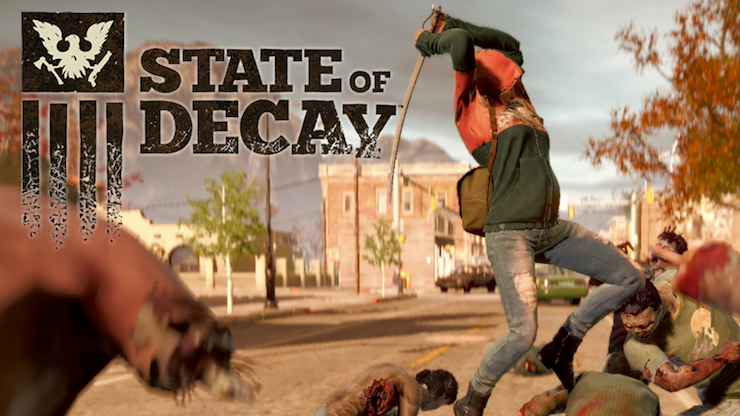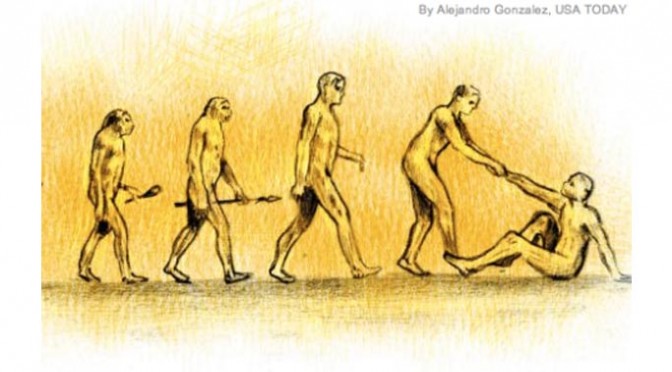Recently there has been some discussion among our blog readers about why we find rape in video games more atrocious than murder in video games. By most accounts, murder is worse than rape—certainly the US legal system thinks so. So why do many of us feel comfortable killing over and over, but would feel very uncomfortable virtually raping an avatar? There are some very good points to why this may be the case, but first I want to make a delineation. Maybe you don’t find a problem with virtual rape; or maybe you find the idea that you could shoot someone—even if it is in a video game or in laser tag appalling. And that’s a different blog. This is a blog for those, which I suspect is a vast majority, who feel more comfortable shooting a virtual bullet into a virtual body than raping that same virtual body. This is a discussion of why we might have those inclinations.
Let me also say that this line has not just been drawn by me or other feminists. Quite the contrary in fact—I have fielded more questions about how I could participate in a field that condones virtual murder from other feminists than from any other group. So while, yes, my ultimate aim is to argue that video games should not portray rape, I do genuinely find this question of rape/murder fruitful and interesting, not to mention that it needs to be discussed. Enough hedging. Here I go.
Is it hypocritical that we allow so much murder in video games but not rape? Jim Sterling, of the Escapist, doesn’t think so. And here’s why (note: none of these are complete reasons in and of themselves. They each contribute one facet to this incredibly complex question) and also a side note: these points are all made in the video in more detail, so if they lack the nuance, I apologize):
- Murder is not black and white in our society. Sometimes killing is not only ok, but it means that you are a better person for it. Look at the way we treat soldiers. Soldiers fight for the freedom of Americans and are glorified for it constantly. So it would be more accurate to say that some killing is condemned not all killing. We also value revenge in our society—some people deserve to die (several states still employ the death penalty) in life and in video games (we rarely shed a tear for a killed villain).
- Murder in video games is a victimless crime. Now, as soon as I type it I can think of 100 ways this isn’t true. But again, we’re talking about broad strokes here—figuring out why we have a sense that rape is worse than murder as a source of entertainment. Sterling’s point here is that most of the time when we kill someone in a game the situation is kill or be killed—you’re killing someone else before they kill you. They aren’t helpless. They aren’t defenseless. They’re willingly in the battle the same as you. Whereas in rape simulations, it is never (I really do think never) rape or be raped. Sterling says, “rape requires a victim… it inherently requires someone who can’t fight back.” It’s difficult if not impossible to imagine a moral reason for committing rape.
- Death comes to us all while rape overwhelmingly affects only women. Often we adopt a kind of morality when we participate in games, and for better or worse, this morality often dictates that we must kill for a greater good. But outside of games, we are all able to be killed. Of course men can be raped just as women can be, but women are raped far more than men and some definitions of rape suggest that it is something women (biologically) cannot commit. This creates a very real power dynamic that most of us find troubling. So when we buy into the story of a video game, it makes sense that we are willing to compromise something from “real life” that is less one-sided like death than something that overwhelmingly affects women, like rape. As Sterling rightly points out, many people believe that death is the doorway to a better world; death brings about heaven. But, “there is no rape heaven.”
- We all know what murder is, we understand when it’s wrong, and we are secure in that, allowing us to draw a solid line between fantasy or reality (unless you’re crazy). Unfortunately, there are many practices in the culture that do things to undermine the atrocity of rape: victim blaming (ie. she was dressed as a whore or has too much sex vs. blaming a murder victim for having too much life). Because rape is such a gray area in this way, it is always going to be more sensitive.
- Rape requires a desire to victimize that goes beyond the impersonalability of most simulated killing. We see this is someone in fiction who is supposed to be completely hated (ie. the guy in The Girl with the Dragon Tattoo… anyone who saw the movie/read the book knows the one I’m talking about).
Now these positions certainly seem to make sense to me. But as we saw with the Dickwolves controversy, not everyone is as thoughtful as Sterling is here. For the uninitiated, awhile ago Penny Arcade published a tasteless comic that quickly became part of “rape culture.” Rape culture is a movement in the entertainment industry to excuse rape practices (at best) and perpetuate and idolize them (at worst). In a sense, rape culture tries to normalize and make a joke out of rape. In these situations, rape is trivialized (theoretically to the point where we don’t find it appalling anymore). Ideas such as that rape is inevitable, or victim blaming, or working to make rape invisible, slut-shaming, and so on come from rape culture.
Penny arcade went further than making a joke about rape. They went on to make t-shirts about the dickwolves and then created a dickwolves rape survivors guild. As disgusting as I personally find this, I think the bigger issue is not the question of why it’s ok to talk about murder this way but not rape, but the way that actions like these support rape culture. It becomes part of a conscious movement to trivialize rape—which does not have the same place in our culture that murder does. Because so many people think rape is ok, or that rape is partly the victim’s fault, or any of these things, people who contribute to rape culture really do legitimize rape.
Of course, respondents to rape culture have the exact responses that people have to video games: if we can’t make jokes about rape then we shouldn’t be able to make jokes about murder. And this goes down the line for every single entertainment media. But, I suppose, in the end it is up to the players to define what is and is not ok for them. I just hope that people who contribute to rape culture don’t succeed in trivializing rape through the media I love.





2 thoughts on “Desensitivity? Apathy? Or Other?: Murder vs. Rape in Video Games”
I was discussing a similar subject with my friend, Craig, this morning. We were discussing whether or not The Walking Dead television series would depict the rape of Michonne at the hands of the Guv (as it is part of the narrative of the graphic novel). My buddy Craig was quick to point out number 1 and 2 on this list. His rationale was that murder of zombies is a victimless crime and that only humans who are morally corrupt have been killed (The murder of Shane, for instance, is not a black and white murder), but that the power dynamic involved in rape was a totally different story. Craig mentioned his disgust at the thought of rape and we discussed how that might alienate the audience from the show and thus lose viewers. This also makes me consider why we do tend to create a culture of silence surrounding rape. It seems that we just do not want to be confronted with the reality of rape.
How the heck did I miss that debacle? Guess I was too deep in other research. Erk.
What I can’t understand is why they would have made the dickwolves positive in the first place. Seeing just the original comic, the rape victim is male and rape is not the punchline–the fact you can’t rescue additional slaves is. And while this trivializes rape, it still in no way hints at the shitstorm that was to follow. I’ve often thought it was REALLY weird in games that you can only rescue or help people when you have the quest. I suppose the mechanic is designed so you aren’t always screwing over other people. However, in Mists of Pandaria there are some places where you can rescue extras and may even have to when an enemy attacks you and I like that much more.
That said, I have not heard rape culture as something defined as a knowledgable movement before, but more as something that is IN our culture that we have to work hard to get rid of. I’m well aware of men’s rights organizations and others that might formally organize around such an issue, but where else is this done knowledgably, not embeddedly? (I’m not arguing the point, I’m just curious!)